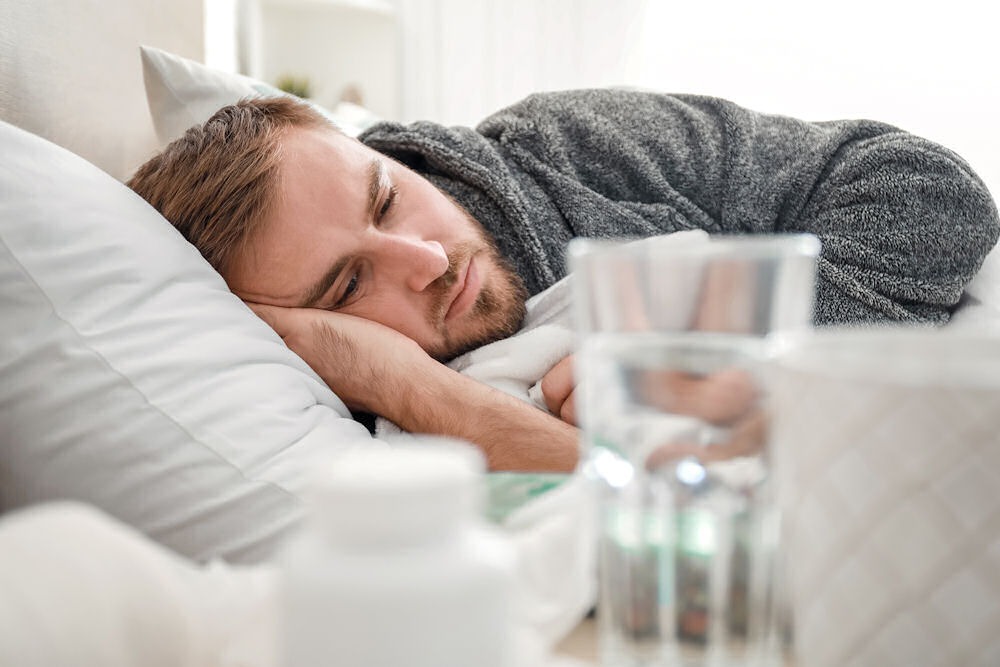Imagine you’ve decided to quit drinking for good, but instead of feeling better, your body starts to rebel in terrifying ways. Shaking, confusion, hallucinations, sweating – it’s as if your brain has been thrown into chaos. This could be delirium tremens (DT), one of the most severe symptoms of alcohol withdrawal. It’s a medical emergency that can turn life-threatening without proper care. If you or someone you know is battling alcohol dependence, understanding how long DT can last and why it happens is critical to navigating the road to recovery safely.
Delirium tremens is your body’s extreme reaction to a sudden loss of alcohol after long-term heavy use. While most withdrawal symptoms pass within a few days, DT can linger for a week or more, with some effects feeling like they last forever. Let’s take a deeper look at what to expect, how long DT typically lasts, and why seeking medical support is a must during this difficult but life-changing process.
What is the Timeline of Delirium Tremens?
Delirium Tremens (DTs) is a severe form of alcohol withdrawal that can occur when someone who’s been drinking heavily for a long time suddenly stops or drastically reduces their alcohol intake. The timeline of DTs is like a rollercoaster ride that lasts about 2-3 days, but it can feel longer.
It usually starts within 6-24 hours after your last drink. This early stage might feel like a bad hangover (sweating, shaking, symptoms of anxiety, and headaches).
This is when things normally nosedive. If your body hasn’t adjusted yet, you might start having visual and auditory hallucinations.
By day 3, the hallucinations fade, and the shaking and anxiety may start to improve, though you might still feel the aftereffects, like confusion or disorientation.
After the intense phase, it can take weeks to fully recover, both physically and mentally. You may continue to feel foggy or depressed for a while.
What Are the Symptoms of Delirium Tremens?
Delirium Tremens (DTs) is a medical emergency, and its symptoms can be intense. If you have been drinking heavily for a long time and suddenly stop or cut back, your body can go into withdrawal. Here’s a breakdown of what those symptoms can look like:
- Shaking and Tremors
- Sweating Profusely
- Hallucinations
- Severe Anxiety
- Confusion & Disorientation
- Seizures
- High Heart Rate and Blood Pressure
- Nausea and Vomiting
- Sleep Disturbances
- Fever
What is the Most Common Cause of Death in Delirium Tremens?
The most common cause of death in Delirium Tremens (DTs) usually comes down to one of two things: seizures or cardiac complications.
Seizures
Seizures are one of the scariest and most dangerous symptoms of DTs. When alcohol withdrawal hits hard, the brain goes into overdrive because it’s no longer getting the alcohol it’s become reliant on. This overstimulation can trigger a seizure, which is when your brain’s electrical activity goes haywire.
Cardiac Complications
The stress of withdrawal, combined with the raised heart rate and high blood pressure, can lead to serious issues like heart attacks or arrhythmias (irregular heartbeats).
What Should You Do If You Experience DTs Symptoms?
If you start feeling the symptoms of Delirium Tremens (DTs), don’t wait for things to blow over. This is a serious situation that requires immediate medical attention. Here’s what you should do:
First things first, get help. DTs can escalate quickly, so you need to have medical professionals involved. Call 911, or your doctor, or go to the emergency room immediately.
It might feel like a huge personal struggle, but going through DTs alone is dangerous. If you can, let a close friend, family member, or someone you trust know what’s going on.
If you’re at home and can’t get to the hospital right away, make sure you’re in a safe, quiet place where you’re less likely to injure yourself.
This one is pretty obvious. If you’re experiencing DTs, drinking alcohol to “ease the symptoms” is NOT the solution. It might seem like a quick fix, but it will only worsen the symptoms you’re experiencing.
Once you’re in a hospital or medical setting, they’ll likely give you medication to help manage the withdrawal symptoms and prevent seizures.
Once the worst is over, your mind and body will need rest, and the medical team will make sure you’re comfortable.
Talking to a therapist, joining a support group, or entering a rehab program will give you the tools you need to manage alcohol withdrawal and stay sober in the future.
How is Delirium Tremens Treated by Professionals?
 1. Hospitalization is Key
1. Hospitalization is Key
Once in the hospital, doctors and nurses will keep a close eye on things, monitor your vital signs (like heart rate, blood pressure, and breathing), and make sure you’re safe throughout the process.
2. Medications to Calm Your Nervous System
Doctors will usually give you medications, like benzodiazepines (for example, Valium or Ativan), to calm your nervous system. These meds help reduce the anxiety, tremors, and seizures that can come with withdrawal, and they make the whole process a lot more manageable.
3. IV Fluids to Keep You Hydrated
Dehydration is a big problem during DTs, especially if you’re sweating a lot, vomiting, or not able to keep food or drink down. That’s why doctors will often give you IV fluids.
4. Monitoring for Seizures
One of the major risks with DTs is seizures, so the medical team will be prepared to manage that if it happens. If a seizure occurs, they’ll act quickly to stop it.
5. Managing Your Symptoms with Other Medications
Sometimes, DTs can cause hallucinations or extreme confusion. If that happens, doctors might prescribe other medications to help stabilize your mood and mind. They may use antipsychotics or sedatives in certain cases to keep you calm and prevent the mental distress that often accompanies DTs.
6. Gradual Tapering of Alcohol Use
The goal is to lower the alcohol level in your system slowly to reduce withdrawal symptoms, rather than abruptly stopping alcohol intake.
7. Psychiatric and Psychological Support
This could involve therapy sessions with a counselor, support groups, or even group therapy, helping you address the emotional side of alcohol dependence and begin the healing process.
8. Rehabilitation Programs (The Long-Term Fix)
Rehab focuses on teaching you how to live without alcohol, cope with triggers, and build a healthy, sober lifestyle. This could mean inpatient treatment, outpatient therapy, or even support groups like Alcoholics Anonymous (AA).
Why is Rehab Safer Than Home Detox?
Rehab is way safer than trying to detox at home, especially if you’re dealing with something as intense as Delirium Tremens (DTs). Here’s why:
- 24/7 Medical Supervision. At a rehab center, you get round-the-clock care from medical professionals who know exactly what to do if things go sideways.
- Proper Medication and Treatment. Rehab centers have a range of treatments designed specifically for alcohol withdrawal, like benzodiazepines to calm your nerves, or anticonvulsants to prevent seizures.
- Seizure Management. In rehab, there are trained professionals who are ready to handle seizures if they happen.
- Controlled Environment. In rehab, the entire environment is designed to help you recover. There are no alcohol triggers and no distractions, and everything is structured around your safety and healing.
- Support from Other People. Detoxing in rehab also means you’re surrounded by people who get it. That emotional support can make a huge difference.
- Emergency Response Readiness. Without proper medical care, you could be at risk of dehydration, high blood pressure, heart problems, and even organ failure.
- A Plan for Long-Term Recovery. Once your body is stabilized, rehab centers provide the support you need to stay sober, like addiction therapy, counseling, and aftercare programs.
Residential Alcohol Addiction Treatment in Portland, OR

If you’re in Portland, OR, and looking for a residential alcohol addiction treatment program, Crestview Recovery could be exactly what you need to kickstart your recovery journey. We are all about providing a safe, supportive environment where you can focus on getting sober without the distractions or temptations of everyday life.
When you’re in residential treatment, everything is structured to give you the best chance at lasting recovery. You’ll be guided through a step-by-step process that includes medical detox, therapy (both individual and group), and educational workshops. Having that structure helps keep you on track and builds good habits that will help you in the long term. This is a place where you can focus on healing and learn the tools to live your best, alcohol-free life. If you’re ready to begin the journey to a healthier life where you’re in control, contact us today.
































